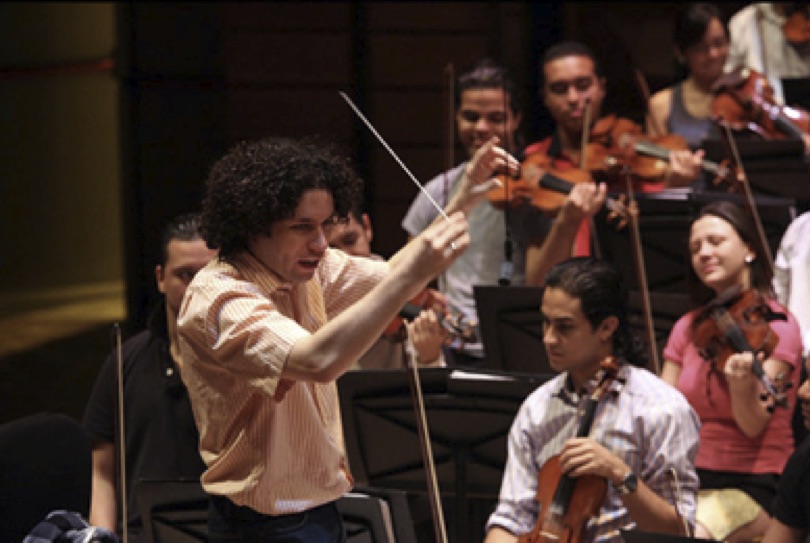
While being rational creatures, we humans are also both spiritual and creative by nature, at all ages. Music, as a catalyst for societal progress, has proven to be particularly effective with the youth of our species. One of the best modern day examples where an artistic intervention has had an unprecedented impact on education and social capital is in Venezuela. Forty years ago, Juan Antonio Abreu, an economist and closet maestro who understood the transformational power of music, had a vision for a cultural project and asked himself “What if….Venezuela had a national youth orchestra?” What began with twelve students in a garage has since transformed the lives of hundreds of thousands of underprivileged youth.
It’s called El Sistema, “the system”. Its method, in a nutshell is described by United States Abreu Fellow Marie Montilla who was sent to Caracas to train: “You give a child an instrument and throw them in an orchestra. They sit in a chair all afternoon, no breaks. I thought, this can’t work. I was wrong. I’d never seen so many happy children, not one ever complained.” Any child, from the age of two, can join an urban center or nucleo. Unlike conventional music education in the West, which tends to serve the elite, El Sistema works from the lower classes up, builds on passion and not on talent or skill. In 2012, it existed in twenty-four states in the form of 126 community-based centers and 326 orchestras and choirs. The annual budget tops US $30 million and the program which has migrated through ten different ministries currently sat in direct report to the President.
Venezuela boasts no less than four touring orchestras, its flagship under the skilful baton of the Los Angeles Philharmonic’s maestro Gustavo Dudamel, a product of the system who remains dedicated to its growth and success. In 2007, the Inter-American Development Bank approved a US$150 million loan to El Sistema based on its own research that linked the program to declines in drop-out rates and juvenile delinquencies. They calculated that the multiplier effect of one dollar invested in the program is 1.68 in social benefit.
El Sistema is now being introduced into the public school music system and the aspiration is to increase the current nation-wide 250,000 participants to 500,000 by 2015. Many of the children live under conditions of constant fear and trauma, victims of homelessness, poverty, abandonment, violence, abuse and drugs. Montilla concludes: “In El Sistema, t hey can express their emotions through their instruments. This speaks to their spirit. It gives every kid a chance.” One artist businessman’s effort to let the children play is giving hundreds of thousands a hope, a future, and a life with meaning.
Brock University’s Michael P. Berman, might describe Abreu as an “artist leader” and call him a Hermanaut – a seeker, a questioner and crafter of meaning.